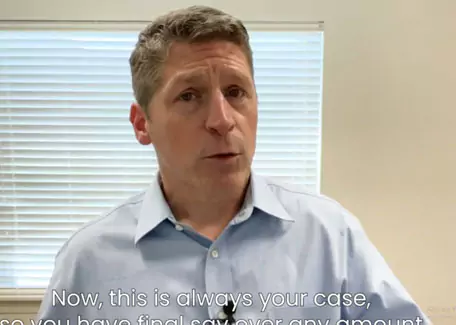What is the Difference Between a 102 and a 103 Divorce in Louisiana?

What Is The Difference Between A 102 And A 103 Divorce In Louisiana?
Pursuing a divorce action in Louisiana generally begins with determining whether to invoke Louisiana Civil Code 102 or 103. Although both divorce basis shares specific requirements, they greatly vary in detailed proof, conditions, and procedures. Thus, it is vital to understand what each divorce type entails, the similarities, and their differences to better determine which of the two applies in your situation.
What Is 103 Divorce In Louisiana?
Divorce 103 is defined, and its requirements are stated in the Louisiana Civil Code 103. This basis for divorce is generally regarded as a more straightforward, faster, and more economical option to obtain a divorce in Louisiana because it does not require a Rule to Show Cause, unlike Divorce 102. However, this divorce basis must show immediate causes for divorce to be granted.
Moreover, this type of divorce can be granted to a petitioner by a default judgment. A default judgment means that a judge can enter a ruling granting divorce to a petitioner if the defendant fails to respond to the divorce petition.
What Is 102 Divorce In Louisiana?
Divorce 102 is defined, and its requirements are stated in the Louisiana Civil Code 102. This type of no-fault divorce basis generally takes more time and steps since a Rule to Show Cause is required before a divorce can be granted.
What Are The Key Differences Between A 102 And 103 Divorce?
The key differences between these two types of no-fault divorce basis in Louisiana are outlined in the proof or paperwork required and proceedings.
Divorce Paperwork Or Proof Required
Generally, both 102 and 103 Divorce requires the following paperwork to be filed to obtain a dissolution of marriage in Louisiana:
- Divorce petition that shows the proper venue and jurisdiction where the divorce is filed
- Acceptance of Service and Waiver of Citation and All Delays Settlement Agreement between the parties, in certain circumstances
- Judgment of the Court
- Child Support Worksheet and Parenting Plan agreed upon by both parties if minor children are involved.
An additional requirement for a 102 Divorce is a Rule to Show Cause which means there has to be a court hearing. This document is supposed to prove that the parties have met the mandated days of physical separation without reconciliation.
A Rule to Show Cause document must state the following:
- Proper service of the original petition to the other spouse;
- That the required 180 (no minor children) or 365 (with minor children) days have elapsed since the proper service;
- Parties have lived separate and apart for the required 180 (no minor children) or 365 (with minor children) days;
- Parties did not have a covenant marriage.
However, note that a party to the 102 Divorce may expressly waive service of the Rule to Show Cause.
Whereas in a 103 Divorce, the petitioner must allege that the other spouse has committed at least one of the following:
- Adultery; or
- Committed a felony and sentenced to death or imprisonment at hard labor; or
- Whether during the marriage, the other spouse has physically or sexually abused the petitioner or a child of one of the spouses. It does not matter for this requirement if the other spouse has been prosecuted or not for the abuse they have committed; or
- A protective order or injunction was issued after a contradictory hearing or consent decree during the marriage against the other spouse to protect the petitioner or child of one of the spouses.
Divorce Proceedings
In a 102 divorce proceeding, the parties can immediately file for their marriage’s dissolution without having to live separately and apart first. However, a mandated waiting period is 180 days for parties without minor children and 365 days for parties with minor children before the divorce can be finalized.
If there are minor children in the marriage, a hearing would be scheduled after filing the petition to divorce. This hearing would be to discuss other divorce matters about child support, custody, and visitation matters. This hearing could be waived if the parties have an agreement addressing these matters. If no such deal is in place, the parties must attend a mandatory session with a court-appointed hearing officer to sort out child support, custody, and visitation matters.
The role of the court-appointed hearing officer would be to assess the case and provide a recommendation regarding child custody, support, and visitation. Unless the parties or one party objects to the hearing officer’s recommendation within five days, the court’s findings become the court’s final judgment. However, if the parties have an objection to the court’s determination, they would be assigned for mediation before they can be set to proceed to a hearing with a judge.
Whereas, in a 103 divorce proceeding, the parties without minor children must first live separately and apart for at least 180 days and a mandated 365 days to live separately and apart for parties that have minor children before filing for the divorce petition.
It is important to note that reconciliation between the parties nullifies any action for divorce. Reconciliation requires that both parties intend to reconcile and that sexual relations or cohabitations on a limited or trial basis do not show proof of reconciliation.
Understanding what entails and the differences between a 102 and 103 divorce in Louisiana is critical to ensure that your case is suitable for the type of divorce you would be filing. Having a family lawyer who is well-versed in divorce law can be extremely helpful in guiding you in pursuing the correct kind of divorce basis. Having a divorce attorney can explain the differences and help you provide the requirements to protect your interests and rights.
If you or a loved one is a party to a no-fault divorce or contemplating a no-fault divorce, you need a dependable family lawyer well-versed in divorce law on your side. Our highly experienced family and divorce lawyers are here to guide and help you in your case. Please call us at (225) 963-9638, or you can click here to contact us for a consultation. Our knowledgeable divorce lawyers can help you assess your situation, represent your interests, and answer any concerns you may have regarding your case.



